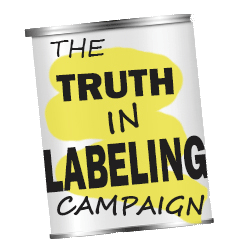Straight from the horse’s mouth: How to tell your story, market your idea and sell your product without mentioning that its use could be lethal
Nobody does it better than Ajinomoto and their team of public relations specialists. Since 1957, when they changed the way they manufactured monosodium glutamate (a.k.a. MSG), and reports of reactions to MSG began to circulate, they’ve waged one hell of an effective marketing campaign aimed at convincing consumers (and anyone who might influence consumers) that MSG is harmless. And their success is evidenced by the facts that researchers in the United States rarely study the effects of MSG toxicity and medical journals don’t often publish studies that even suggest MSG might be toxic. Mainstream media dutifully carry Ajinomoto’s message while physicians don’t diagnose for MSG-sensitivity, and the FDA gives false testimony to the safety of MSG.
Recently, Jeryl Brunner writing in Forbes, interviewed one of Ajinomoto’s own, who showed us how it’s done.
Building Tia Rains’ expert/celebrity status
Brunner’s interview starts with Jeryl Brunner explaining that Tia Rains, an Ajinomoto executive, is “crusading to change the perception of monosodium glutamate.” Following are the feel-good words you’re supposed to associate with Tia Rains (without realizing that you’re being brainwashed). They’re used interchangeably by Rains and Brunner to build Rains’ expert/celebrity image.
- Nutrition (nutritionist)
- Scientist
- Nutritional scientist
- Her true calling
- Mastering the art
- Devoted
- Educating
- Optimize
- Understand
- Guru
- Inspired
- Swimmer (a sports figure)
- PhD
- Passion
- Research
Then there are statements about Tia Rains’ “crusade”:
- Her specialty is debunking misperceptions of maligned foods.
- She’s focused on translating nutrition science into application to advance public health.
- She’s dedicated to mapping out a communication approach that resonates with her audience.
The headline actually reads — “For Decades, This Nutrition Scientist And Marketing Guru Has Inspired Millions To Change Misperceptions.”
Brunner goes on to say,
“Nutrition scientist Tia Rains is devoted to educating people about the food they eat. Her passion for nutrition developed from being a child competitive swimmer. Rains knew that nutrition could optimize her performance and she wanted to understand how.
“For two decades Rains has spent most of her professional career mastering the art of nutrition communications. A PhD in nutritional sciences, her specialty is debunking misperceptions of maligned foods.
“Rains started at Kraft Foods where she found her true calling at the nexus of science and application. Then she lead nutrition research at a contract research organization. From there she moved to the Egg Nutrition Center where she led a successful effort against the public vilification of eggs.
“Her latest endeavor is crusading to change the perception of monosodium glutamate, better known as ‘MSG.’ As Vice President of Customer Engagement and Strategic Development at Ajinomoto Health & Nutrition North America, Rains is a health and nutrition advocate within the food and nutrition industry. She is focused on translating nutrition science into application to advance public health.”
Here’s how Rains would inspire you to change your opinion on MSG being toxic, using “art and science.”
Ordinarily, there would be five parts to the “art and science” of generating propaganda:
1. A positive image of the person delivering the message (an expert or a celebrity)
2. A recitation of the good things about the product,
3. A recitation of how the product (MSG) has been maligned,
4. A recitation of what’s bad about those who contradict claims that the product is worth buying, and,
5. A recitation of alleged “facts” – lies that people will be told about MSG.
In Brunner’s article, however, the focus is on the expertise of the person making the presentation as she exposes the root of all this “misinformation” (which, Rains says, is a 1968 article in the New England Journal of Medicine).
To accomplish that, Rains and Brunner use words that will resonate with her audience as she:
Builds sympathy for poor maligned MSG:
- “MSG is one of the most baselessly demonized ingredients in American history.”
- “We’re attempting to overturn a terrible and long history of xenophobia and misinformation.”
- “MSG became an easy target and the stigma took hold.”
Praises the success of her efforts to convince people that MSG is “safe”:
- “To date, her efforts have contributed to more than twelve million Americans becoming more positive toward the ingredient.”
Reinforces the positive image that Rains has built for herself:
- “I hope we can get to a place where we’re leaning more on science than personal feeling, or even fear.”
- “Every time I present facts and get someone to shift their perception, I’m reminded of why I do what I do.”
- “As a scientist, I’m an analytical thinker by training and recognize the importance of research and data. I am able to make science accessible and understandable for the average consumer. But I also think critically about the variety of factors that inform a perception and then see how we can work with researchers and experts to examine why they persist. Credible data is important when creating successful marketing campaigns.”
Urges followers to deliver a balance of logic and emotion:
- Be logical. Logic gives people confidence in the message.
- Play to the audience’s emotions. Emotion allows people to take ownership of Rains’ campaign and work to have others work with her to change their negative opinions about MSG.
Speaks of the benefits of using MSG:
- It’s critical for people to taste what MSG does to food and truly experience it.
- MSG can be used as a replacement for table salt.
Recites some of the half-truths told by the glutamate industry:
- “Decades of research validates MSG’s safety.”
(NOTE: the research said by Rains to validate MSG’s safety is badly flawed, in some cases using placebos made of excitotoxic amino acids that cause reactions identical to those caused by MSG.)
- “Public health organizations around the world stand by its use in the food supply.”
(NOTE: The organizations referred to by Rains did no research of their own on the safety of MSG (neither library nor laboratory research), but were given material to review by Ajinomoto and Ajinomoto’s agents, which includes the FDA.)
For more information see: https://www.truthinlabeling.org/assets/industrys_fda_final.pdf
For obvious reasons, neither Brunner nor Rains mentions brainwashing which, we have observed, is her basic modus operandi. Brainwashing can be accomplished in many different ways. Here it’s done by pairing the three letters MSG with feel-good words. Just as food was paired with ringing a bell for Pavlov’s dogs to condition them to salivate when a bell was rung, pairing “MSG” with happy, soothing words will make people feel good every time they think “MSG.”
What more could a propaganda artist ask for than a couple of pages of subtle brainwashing displayed on the pages of Forbes.
If you have questions or comments, we’d love to hear from you. And if you have hints for others on how to avoid exposure to MfG, send them along, too, we’ll put them up on Facebook. You can also reach us at questionsaboutmsg@gmail.com and follow us on Twitter @truthlabeling




